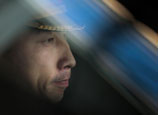
This means high-end foreign healthcare providers are targeting just 5.4 million of China's 181 million elderly people, indicating that the market may not be as large as companies hope.
But the number of the nation's retirees is skyrocketing, meaning the number of seniors looking for high quality may also grow.
Though the need to deal with the rapidly aging population is an immediate and real concern, investment in China has changed and businesses must be cautious before leaping into unknown markets, said Shobert of Rubicon Strategy Group.
"Now, foreign operators are very focused on a patient and disciplined approach that emphasizes market research, cautious build-outs, and careful selection of which demographic or market niche to emphasize."
Whether or not foreign investors have waited long enough to re-invest efforts into getting a foothold in China is still unknown. For now, many are still adopting a wait-and-see attitude.
"The question of whether the industry has the elasticity to absorb excess capacity, learn from early mistakes, and then re-deploy across China in a time frame to make for a compelling industry opportunity or to address the very real human needs this industry serves, remains to be seen," Shobert said.















 Nutritious lunch provided in Taipei's elementary school
Nutritious lunch provided in Taipei's elementary school


![]()
